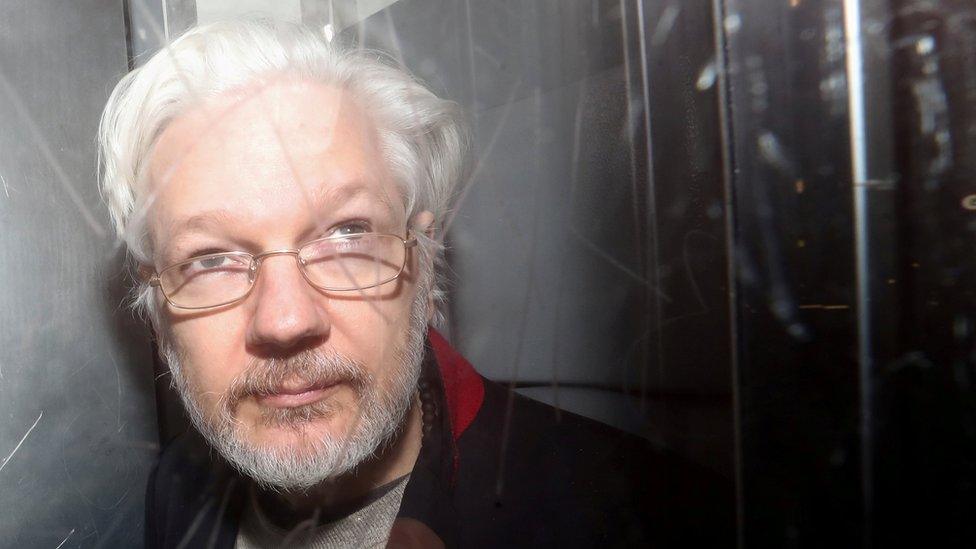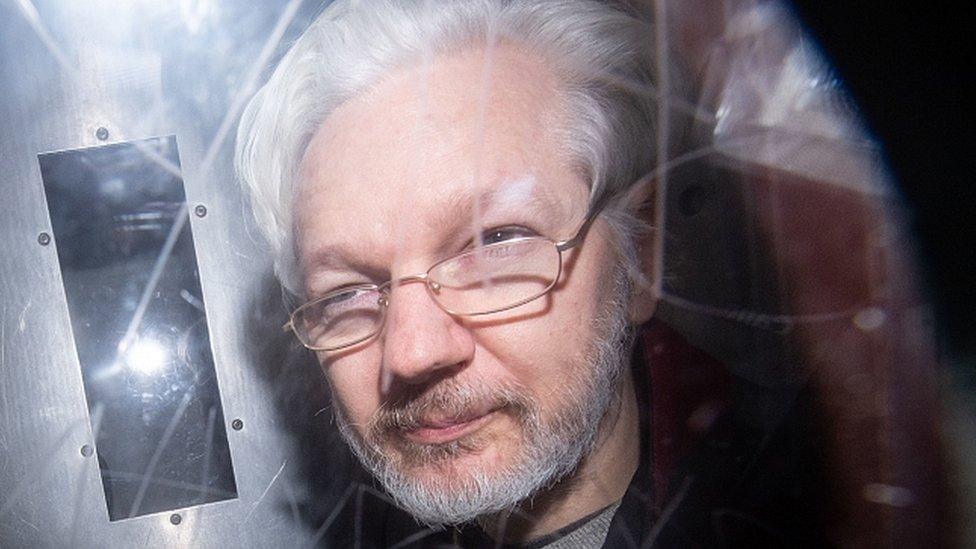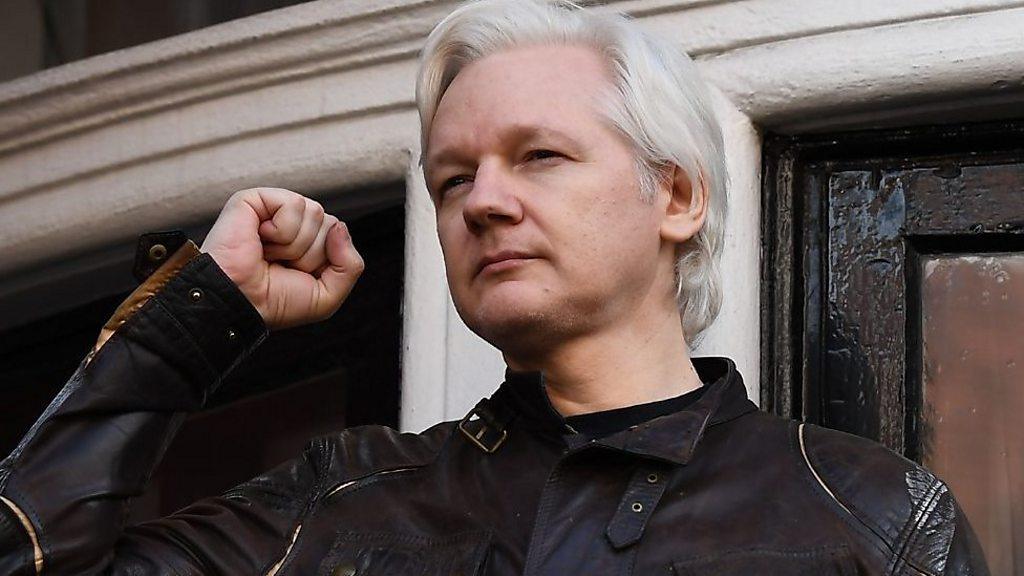Julian Assange: What is extradition and how does it work?
- Published
Watch: From 'teenage hacker' to fighting US extradition - the Julian Assange story
Wikileaks founder Julian Assange is seeking permission to appeal a decision to extradite him to the United States.
Mr Assange, whose extradition was approved by UK Home Secretary Priti Patel in June, is wanted in America over the leak of secret military information.
What is Julian Assange accused of?
Assange is accused of conspiring to hack into US military databases to acquire sensitive secret information, which was then published by Wikileaks.
He says the information exposed abuses by the US military and that the case against him is politically motivated.
US prosecutors say the leaks put lives at risk. They requested Assange's extradition from the UK, where he is currently in prison.
For almost seven years - until April 2019 - Assange took refuge inside the Ecuadorian embassy in London, where he sought asylum to avoid extradition. He claimed he was a victim of human-rights abuses and would face a life sentence if extradited.
At the time, he had been facing extradition to Sweden on allegations of sexual assault - a case that was later dropped.
What is extradition?
Extradition allows one country to ask another to hand over a suspect to face trial.
It helps nations co-operate in tracking down criminals, and makes it easier to then send those criminals to face trial in the country where their offences were committed.
How is extradition agreed between countries?
The UK Home Office maintains extraditing Assange would not be "incompatible with his human rights" -and that while in the US "he will be treated appropriately".
Previously UK judges blocked his extradition because of concerns about his mental health.
The circumstances and rules for extradition are set by treaties - legal agreements between states - and laws within each country.
Some nations have very tight rules: Germany's constitution, for instance, allows only the extradition of its own citizens to other European Union (EU) states or international courts.
So how does extradition from the UK to the US work?
Every time the US wants to put a suspect who is in the UK on trial, its prosecutors ask the British government.
If the request has been made correctly, the home secretary sends it on to the courts, which issue a warrant for the suspect to be found and arrested.
Once the individual has been detained, a judge examines the request. The judge must be satisfied that the individual is definitely the suspect the US seeks, and that the alleged crime is an offence that could lead to trial in the UK, had the incident happened on its territory.
The judge must also consider whether the person has already been prosecuted for the crime, or whether the offence happened in a different country entirely.
Julian Assange's father fears 'worried' son's extradition
Under UK law, Parliament has banned extraditing anyone to face trial in a country that has the death penalty, unless the requesting nation has promised not to impose it.
Any final decision on extradition to the US is made by the home secretary.
The suspect can, however, appeal against extradition - a process that can last more than a year. The appeal could go all the way to the UK Supreme Court or European Court of Human Rights.
The UK has previously blocked a number of extraditions to the US on human-rights grounds.
The most significant case was that of Gary McKinnon. The self-confessed hacker was wanted for targeting US government computers, but the UK said he was too ill to face trial abroad.
Must evidence of guilt be provided for extradition?
No. Under British law, many nations do not have to provide our judges with detailed evidence that the suspect is guilty.
What this means in practice is that a British judge does not need to be sure that the individual would be convicted.
The requesting nations are simply required to explain to UK courts that there is a case that needs answering.
This is because the UK has concluded that these countries - which include the US - has laws and safeguards in place which guarantee independent judges and a legal right to a fair trial.
Other nations would have to provide fuller evidence of their case to a British court.
In contrast, the US will not send someone to face trial in the UK before its judges are sure the evidence is strong. That is because the US Constitution says nobody can be arrested and detained without proof of "probable cause".
Related topics
- Published20 February 2020

- Published25 June 2024

- Published26 June 2024

- Published11 April 2019
